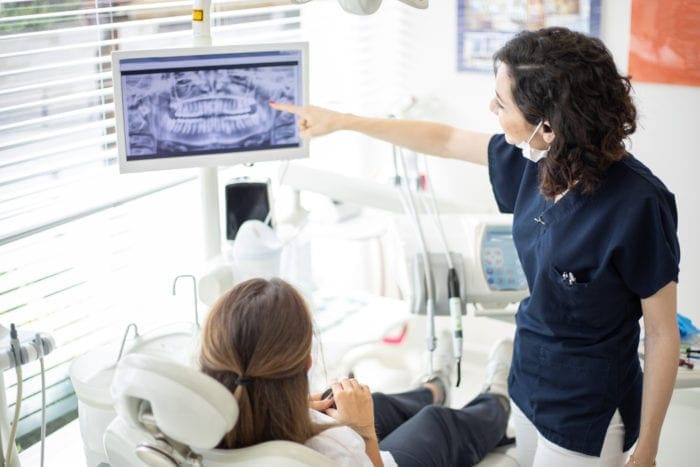The temporomandibular joint (TMJ) which connects the jawbone to the skull can cause problems when injured. Temporomandibular joint disorders (TMD) can cause changes in the bite, jaw pain, and more. At West Ashley Family Dentistry, Dr. James Dickert and Dr. Agatha Lynn help treat TMD in their Charleston, SC dental office. They work with their patients to diagnose and treat their problems in a comfortable and safe office environment.

Commonly Asked Questions About TMJ Disorders
Some frequently asked questions many dentists are asked can include:
What does TMD feel like?
TMD can have many symptoms that manifest in multiple ways. Some of the most common symptoms are:
- Pain or tenderness in the jaw
- Chronic headaches
- Tight, stiff, or sore jaw or neck muscles
- Difficulty chewing
- Lockjaw
- Teeth clenching and grinding (bruxism)
- Muscle spasms
Are there any risk factors for developing TMD?
Some common risk factors are:
- Poor posture in the neck and upper back
- Stress
- Being a woman between the ages of 18 to 44
- Chronic inflammatory arthritis
- Jaw trauma
- Crooked teeth
If you have one or more of these risk factors and have also noticed one or more symptoms of a TMJ disorder, contact our office for care.
How can I treat TMD at home?
Some milder forms of TMD can be treated with at-home care. Patients can apply ice packs to aching joints, avoiding chewing gum, and practice stress reduction through massage or gentle jaw stretches. These treatments are the primary options for patients who have occasional jaw pain or headaches. If symptoms worsen, we recommend that patients schedule an appointment with our dentists so we can find the cause of their TMD.
How are TMJ disorders treated by dentists?
We offer dental splints, bite correction therapy, and orthodontics to treat patients with TMD. Dental splints help keep the teeth from grinding together and adjust the bite into a more comfortable position. Bite correction helps patients when the teeth are not in proper contact, which is a risk factor for TMD. Orthodontics also addresses bite dysfunction by straightening crooked teeth, another risk factor.
Contact Our Charleston, SC Dental Office
Treat TMJ disorders safely and effectively. Call our office at (843) 371-5480 or schedule an appointment with our dentists online.
